US based relations with Iran on bullying and coercion
Superficially great friends and allies, Iran and the USA fell out with each other 40 years ago in 1979 due to the Islamic Revolution of Iran, however, most Iranians remember no less than 60 years of underlying bi-lateral enmity, beginning with US bullying.
But how does one conscionably defeat a bully? Certainly not by being a bigger bully, even if one were so inclined. For this reason, in part, Iran was pulled toward an anti-imperialist revolution which has, to date, kept resistance at the top of its agenda.
A day which is indelibly etched in Iranian collective memory is the 4th of November, 13th Aban according to the Iranian Solar Calendar, which this year fell, ironically, on the 3rd of November. The anniversary of students’ day and the US embassy takeover in Iran, which in the US marked Election Day after debates between a highly-controversial republican and a level-headed democrat.
But what exactly made Iranians suspect America even before the revolution, and can a democrat like Joe Biden make a difference decades later, to unlock closed doors and open the path to US-Iran talks?
Iranian mistrust of the USA
Iran has never trusted the USA, or its policies, even before 1979.
Pessimism vis-à-vis the US is mainly rooted in the 1953 coup [against the Mossadeq government]. Until that event or up to World War II, the US was not much involved in colonialism, I mean externally as it had realized colonialist projects internally. But after that, it gradually found a black image in the countries where it interfered. The Iran issue is a case in point as the Americans were duped by the Britons into getting involved with the 1953 coup. Many related events followed, including Nixon’s visit to Tehran and the death of Iranian students. That along with similar incidents made Iranians pessimistic about the Americans.
Mr. Sadatian, US-Iran affairs expert
Iran ignored own demands order to reach a win-win deal
Despite The Islamic Republic of Iran taking great strides to reach an understanding the Americans broke their pledges as the Europeans have acknowledged.
The Islamic Republic of Iran took great strides to reach an understanding. It even ignored its demands in order to reach a win-win deal. But the Americans broke their pledges as the Europeans have acknowledged it. Furthermore, the atmosphere of mutual confidence built at that time was damaged while it could extend to non-nuclear issues too. Therefore, the Islamic Republic had no other option than resistance. It was Iran’s sole choice particularly after Mr Trump came to power, i.e. maximum resistance against maximum pressure.
Mr AbolFath, Iran-US affairs expert
The symbolism of November 4th
November 4, 1979 is a symbol of the confrontations between these two forces in the history of the Islamic Republic: The founder of the Islamic Republic, Imam Khomeini, was exiled to Turkey on November 4, 1964 for protesting the Shah's affiliations; Dozens of Iranian students were killed on November 4, 1978 in protest to US affiliations.
Culminating in the capture of the US Embassy on November 4, 1979, which was the end of the counter-revolutionary actions of this embassy in Iran. Once faced with that action, Imam Khomeini referred to it as the "Second Revolution."
The celebration of this day is a celebration of the efforts of a country that stands against the desired order of a superpower. (Interestingly, Donald Trump also chose the same day in 2018 to reinstate sanctions on Iran.)
The Americans maintain that Iran disrupts any order. The US is a superpower and it has spent $8 trillion to realize their regional ambitions. Thousands of US servicemen have died in the Afghanistan and Iraq wars in order to restore order. The Americans say Iran complied with the world order up to 1979, but it turned to revisionism afterwards.
Mr AbolFath, Iran-US affairs expert
Would a Biden presidency make The USA less belligerent?
It might or might not make any difference if Biden wins due to the intricacies of US policymaking and international relations.
It would be both correct to say it would make no difference or would make a difference. You may ask why. It’s because of political psychology, policymaking, international relations. That would make people and parties different from one another. A case in point is the difference between Obama and Bush Jr. So was the case with Bush Sr. and Bush Jr. Mitt Romney, Colin Powell or McCain would be totally different from Trump were they elected presidents. However, they are the same regarding the Americans’ objective of containing Iran and causing the country to change its behavior.
Mr. Ajorloo, Editor-In-Chief of the Political Magazine, Mosalas
Democratic presidents of the United States have evidently not refrained from any blows against Iran. The string of sanctions Iran’s post-revolution history has been decorated with; colourfully named by republicans and democrats alike.
Executive sanctions against Iran began with Democrat Jimmy Carter. Clinton later took important steps to hit the Iranian economy with his unprecedented sanctions.
The Obama administration, especially Secretary of State Hillary Clinton, was at the forefront of all US administration sanctions against the Iranian people with "painful" sanctions. Suffice to look at her book, "Hard Choices," and see how she "committed herself" to "cutting off Iran's [oil] vital life." She made every effort to build an international consensus against Iran.
Donald Trump and Joe Biden could not be viewed as totally different. Both may create opportunities and threats for the Islamic Republic of Iran. We cannot say Biden is good, but Trump is bad. If Biden reaches power he would create both opportunities and threats for Iran. So is the case with Trump. If he is reelected, the current sanctions will continue to remain in effect. However, Trump would also create some opportunities for Iran without really meaning it. Therefore we cannot say this one is good and that one is bad.
Mr AbolFath, Iran-US affairs expert
One must bear in mind that in the eight years of Obama's presidency, Joe Biden was the first vice president. In fact, although Trump reinstated sanctions against Iran, most of them had been imposed against Iran by the Democratic administration. BUT with Trump reelected things could get a lot uglier than the economic war on Iran by way of sanctions.
Iran continues to resist the US maximum pressure policy
We are resisting here while Trump continues to stick with its policy of applying maximum pressure on Iran. That may lead to military confrontation. If it happens it would create tensions in the region. Some nations are trying to prevent such confrontation, but Trump has shown in practice that he will continue with his policy if he wins reelection.
Mr. Sadatian, US-Iran affairs expert
It’s a wonder how the US administration has gotten its people to believe the pursuit of Iran and wars on West Asia are worth the trillions of dollars it’s spent.
Biden will probably try for talks with while playing the sanctions game
If Mr Biden is elected, Democrats would opt for multilateralism in regional talks with Iran. But Mr Trump would resort to bullying and force to impose his own views on the Islamic Republic. But Iran has so far resisted and refused to buckle down.
Mr. Sadatian, US-Iran affairs expert
The students who took over the US Embassy, uncovered, what at the time was considered to be, state of the art telecommunications equipment used, in all likelihood, for spying purposes.
In the present day, people in virtual networks or on various social media outlets are talking about the importance of one US presidential candidate over another in resolving the crisis between Iran and the United States.
Iran has repeatedly stated that it does not matter who wins this election because US foreign policy decision-makers have not yet understood Iran's strategic importance in the region and continue to talk about controlling it. The two dominant parties in the United States share this goal, only their tones differ.
Whatever one might say of the democrats, Republican Trump represents the same party that led the United States during the Iran-Iraq war. We do know that Reagan, US president at the time, did not withhold any assistance to Iraq and against the Iranian people.
It is now clear that the United States knew at the time about Iraq's chemical arsenal and Saddam's intent to use it, and even knew where the targets were. At the same time, the United States attacked Iranian ships in the Persian Gulf dozens of times.
The US’s foreign policy relies on two pillars; building consensus and stirring intimidation. Some US administrations, like the Trump administration, are focused on intimidation. He believes that the US’s economic power would make the world obey its order. He doesn’t care about the world’s reaction. He is assured that foreign companies would not cooperate with Iran. That is the intimidating aspect of US foreign policy. If we assume Biden to be willing to continue Obama’s policy, the US would turn to consensus-building once more. He will join global coalitions, improve ties with the European Union and make efforts to satisfy China and Russia.
Europeans strive to avoid complete breakdown in Iran
One reason why the Europeans are defending Iran’s cause is that if Iran is weakened too much to reach implosion a power vacuum would be created, which would cause chaos and repeat Iraqi and Syrian scenarios in Iran. The consequences would be much heavier than earlier thought.
Mr AbolFath, Iran-US affairs expert
US military superiority debunked by Iran
We were a nation with empty hands, but we pinned down the Americans. Before the Islamic Revolution, we had no arms, but after this nation strengthened its determination to end the US hegemony it succeeded. Today, we are highly capable. We can overpower the US’s most sophisticated weapons in the region and discredit the US technology. With such potential, we can naturally resist the US bullying further.
Mr. Salimi Namin, Historian
Should the US succeed in taming Iran, would it not be catastrophic for this region? Especially when considering how our neighbors have shaking hands with Israel of late.
The US has long focused on two issues in the region: energy security and Israeli security. Relying on these two strategic issues, the US is justifying its presence in the region. Following the Islamic Revolution in Iran, the Americans have felt a threat to the Israeli security on the part of Iran. The Islamic Revolution accelerated the trend of revival of Palestinian ideals. It also revived Muslim dignity and independence. It also offered a new and reasonable interpretation of nationalism and territory.
Mr. Ajorloo, Editor-In-Chief of the Political Magazine, Mosalas
Non-colonial imperialism, USA
Reviewing the earlier days of the Pahlavi Shah, Mohammad Reza, a newly-modernized developing country like Iran would have to choose between the Eastern and Western superpowers of the cold-war era, and while the Soviet Union merged nations into its ideological block, the US indirectly colonized them with the promise of sharing in economic prosperity.
Even if not treated fairly in an equal partnership, with the US in charge, sovereign borders would be respected. Even today some old-timers think Iran paid a fair price for technological know-how. But our historian decisively objects to what he sees as a delusion.
When France was (about) to sign an agreement to develop subway station(S) in Iran, the US ambassador opposed and the agreement was not signed. On the nuclear issue, the Americans were opposed even to a research plant. You must know that France was giving Iran the technology. It was the Soviet Union that gave Iran the steel technology. The Americans refused to provide us with steel production technology that was the mother of all industries.
Mr. Salimi Namin, Historian
Deep rooted mistrust of the USA
That is not the only reason why many an Iranian has suspected the honesty of US policy for decades, even before the revolution. It began with what’s known as the 1953 coup that toppled the oil nationalization era Prime Minister Mosaddeq.
Other prominent reasons for Iranian distrust:
One of the first points of contention was Iran’s adoption of the Capitulation Bill, which made it impossible for any American to be tried in an Iranian court of law by giving them immunity from prosecution. This continued from October 13, 1964 to November 4, 1964. It was very brief since both the administration was largely reluctant about, and the people were infuriated by it.
Next is the US attempt to cause the failure of the Islamic Revolution. The highlight would be January 28, 1979, after the US realized that Iran’s new revolutionary governing system would not be bent into the ally it had hoped.
Third would be the US’s provoking separatism among ethnic groups (1979-1980), a ploy it had inherited from European imperial powers of the past.
Fourth would be the US’s issuing of resolutions against Iran and sheltering the deposed Shah of Iran (1980) for cancer treatment.
Another reason for Iranian suspicion towards America, but by no means the least important, the documents uncovered at the US Embassy in Tehran revealing it as a den of espionage.
The US embassy in Tehran, which appeared to be a center for espionage and conspiracy (the 60s and 70s), which is what led to Embassy staffers being taken prisoner by students who had stormed the embassy. They were set free 444 days later, on January 21, 1981, just hours after President Reagan delivered his inaugural address.
This incident may be what cost Jimmy Carter a second term as president. So Iran may complain about the US interfering in its affairs before the revolution and trying to rein this country in, since the revolution. But whatever policy the US adopts towards Iran, reflects back on America. Perhaps that is why America thinks, or appears to think; Iran interfered with its 2020 elections.
Alleged Iranian interference in US elections
In the contemporary history, the trend has been reversed for the first time. It was the Americans and Britons who decided would become prime minister in Iran. A low-ranking US embassy staffer decided who would become prime minister in Iran. I’m not talking about the US ambassador! But now, Iran is accused of interfering with US presidential election. The claims that Iran is sending emails are untrue, but the fact is that we are influential in the US election. I mean that many of those who are fighting against racism in the US are inspired by the Islamic Revolution.
Mr. Salimi Namin, Historian
The Iranians with their long history are tolerant and understanding of political turbulence. But the Iraq-Iran war and how the US aided and abetted the aggressor Saddam Hussein against Iran, are cause for concern or hatred even.
Rivalry and even conflict between Iran and the US may lie under this same opposition to a political interpretation of Islam. In other words, since before the end of World War II, we saw Islamist tendencies with political approach in Egypt: the Muslim Brotherhood. We see it even during the Constitutional Revolution in Iran: Seyed Jamal Assad-Abadi. A sort of return to self or religious revisionism was crystallized in the Islamic Revolution and Imam Khomeini symbolized protest against the political, economic and social system.
Mr. Ajorloo, Editor-In-Chief of the Political Magazine, Mosalas
US lack of affinity with Iran natural turn of events
US aggression aside, the lack of affinity between the two states is actually natural, going by the nature of Iran’s political constitution post-revolution. That can be summarized in one aspect as follows: "Iran's effort to become a free, independent state based on the republic and Islam, versus the US attempts to return Iran to a country serving the West in any way possible"
We’re faced with a reality: the US does not like Iran as it is now. The US expects fundamental changes in Iran in order to allay its pressure. Mr Pompeo has said on several occasions that Iran should become a normal nation. What they mean is something similar to pre-Revolution Iran or some regional nations. Due to such problem, Iran’s efforts to allay pressure have failed.
Mr AbolFath, Iran-US affairs expert
Non resistance is unacceptable
Iran will resist US pressure and sanctions for as long as it deems such resistance necessary. In fact sanctions have made the rhetoric of the leadership more decisive. They are now talking of industrial independence from the West as well as Iran’s own oil economy.
The economic blow Iran suffered through the oil embargo, among other things, showed the Iranian authorities quite clearly that they must free the country's economy from dependence on solely one type of income. Iran, once before, showed in facing Obama's sanctions that it can withstand such restrictions.
On the other hand, Iran's self-reliance with this process can become a model for other countries. Perhaps it already has.
For the Islamic Republic of Iran and most international actors, the US pressure campaign has not been successful. The Iranian economy has not collapsed. Iran’s regional and defense policy has not changed. Iran’s JCPOA approach has not changed. Iran has even distanced itself from hazardous nuclear materials. But the Trump administration thinks differently and its aides say the pressure campaign has been successful and Iran is on the cusp of changes.
Mr AbolFath, Iran-US affairs expert
Iran’s resistance caused an awakening among other regional states, and this turned into an axis of resistance, resulting eventually in The Arab Spring.
At the former US embassy memories prevail of diplomats and Iranian students who inked their demands on the walls; such as: the shutting down of the Den of Espionage and putting an end to imperialism, of any kind, in Iran, no matter which white man accused of sexual assault enters the White house.
Israeli settlers kill 19-year-old Palestinian man in West Bank raid
Israel installed, managed security system at Barak-Epstein New York flat: Report
Iran deplores Israel’s new land grab scheme in West Bank
VIDEO | Vienna holds conference dubbed 'Iranian-Islamic Civilization, Identity and Historical Splendor'
VIDEO | Press TV's news headlines
Journalist Tucker Carlson says he was detained in occupied territories after interview with US amb.
VIDEO | Is there any hope for Russia-Germany relations?
VIDEO | Israeli land grab policies


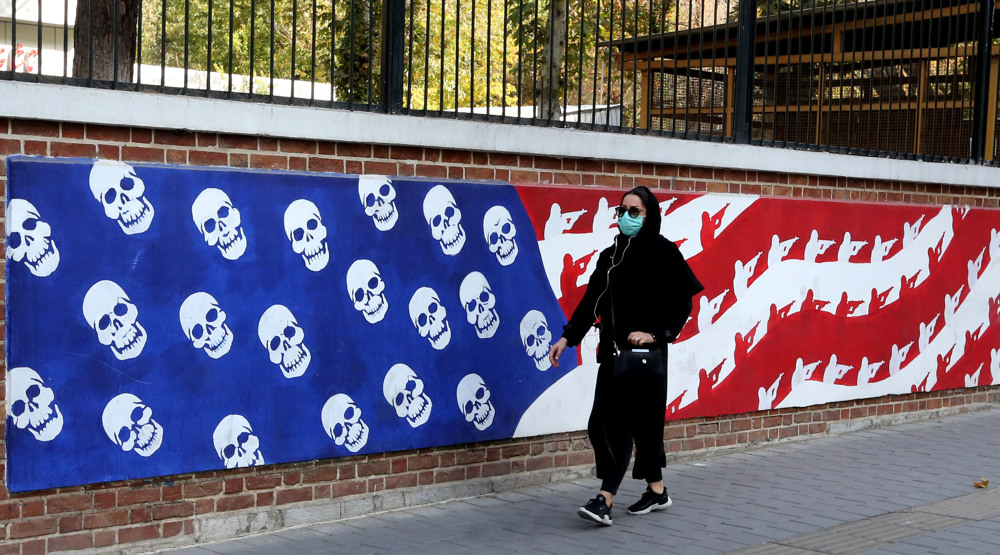












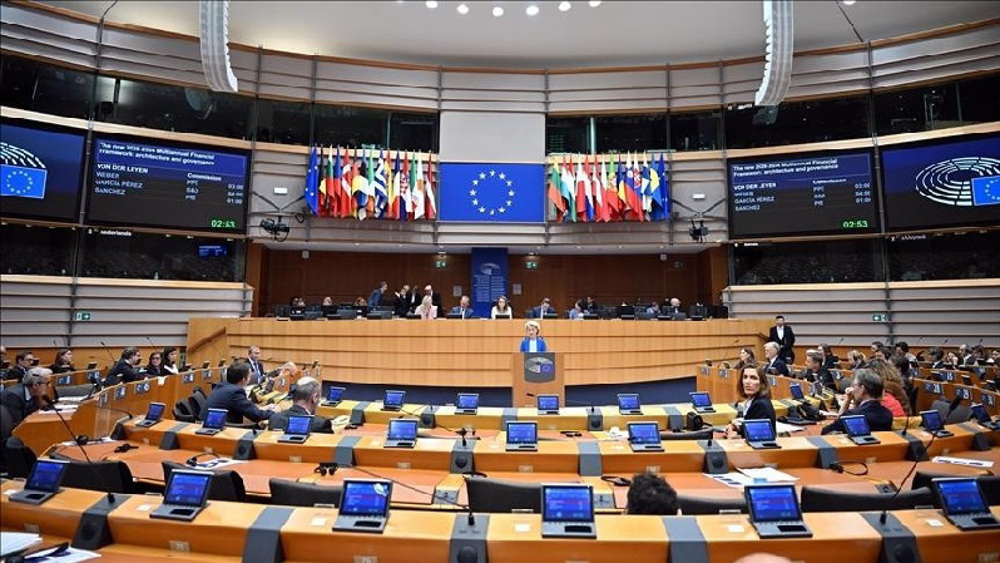



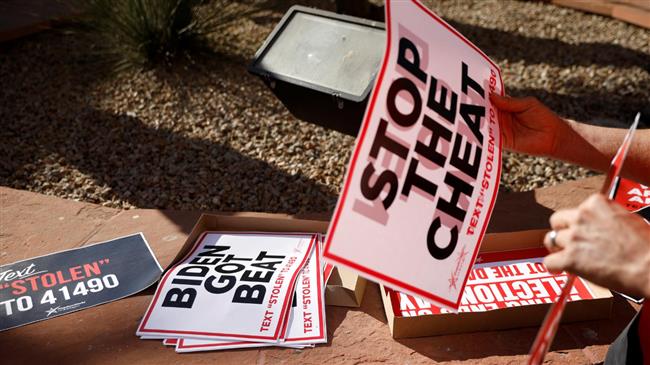
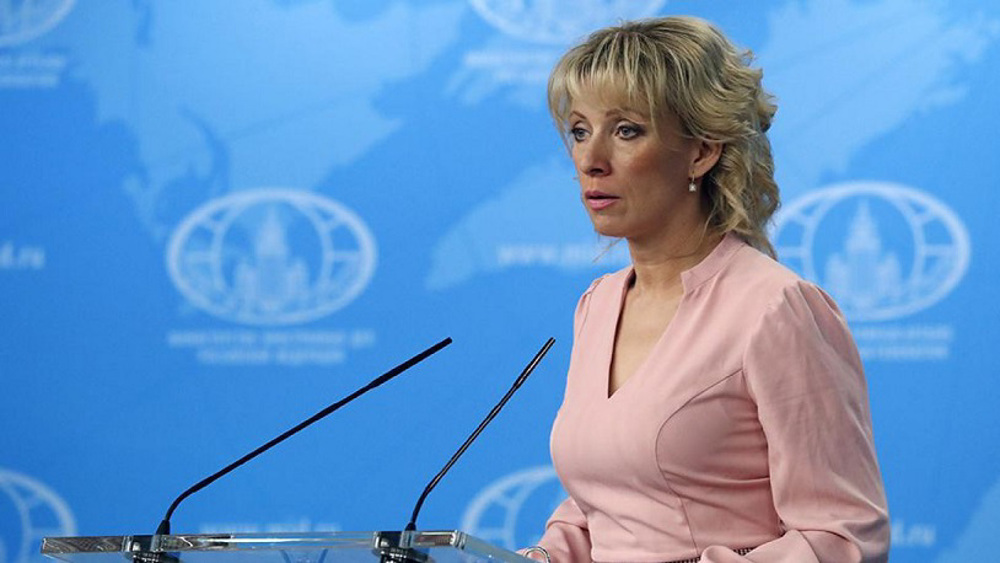
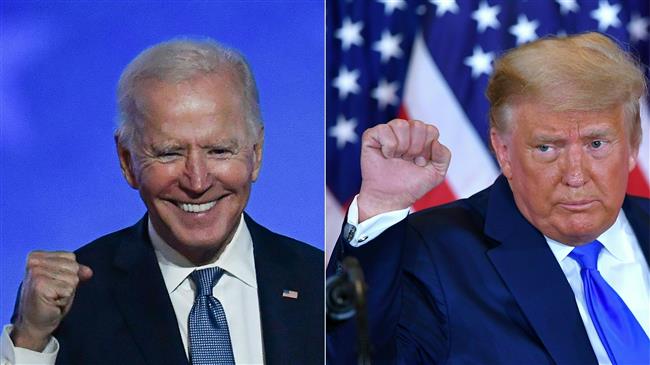
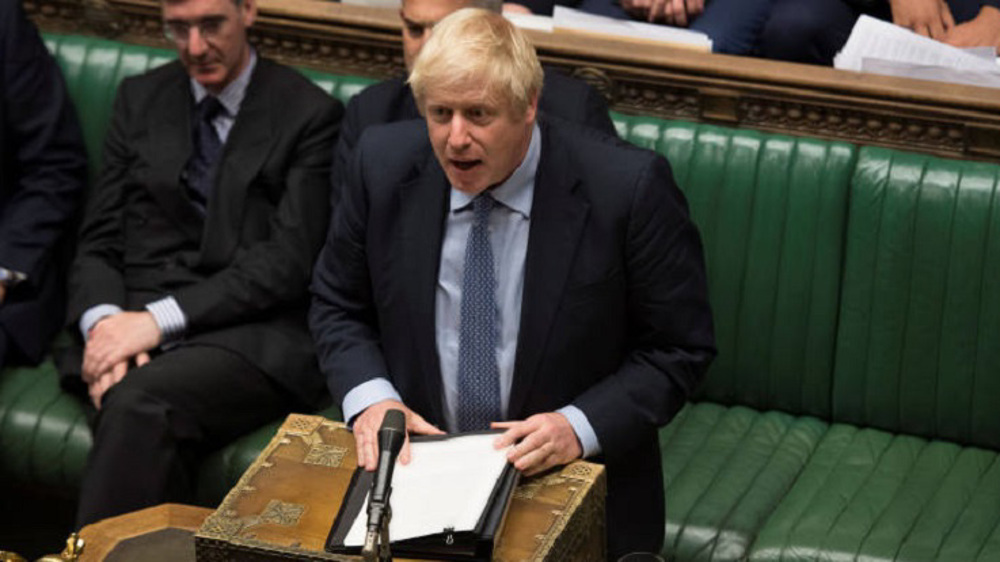
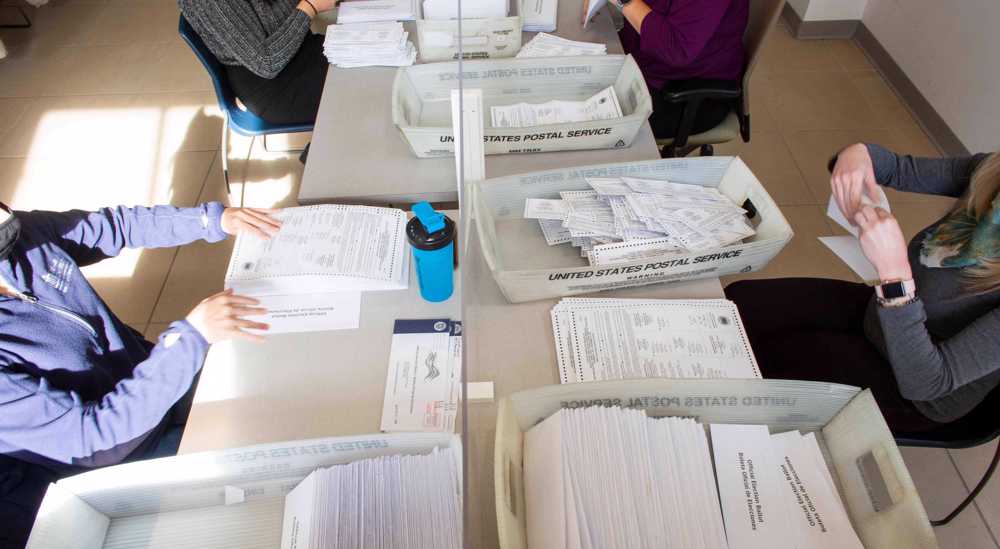
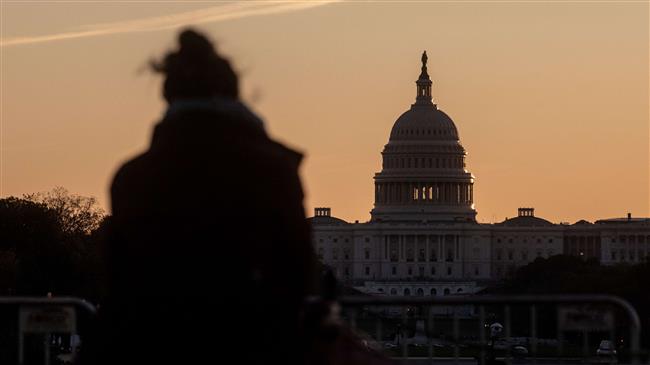
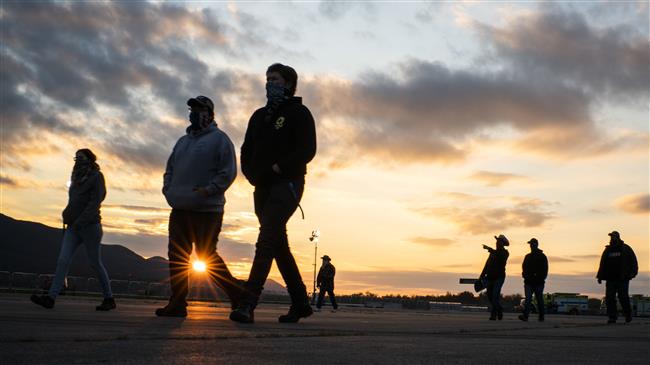

 This makes it easy to access the Press TV website
This makes it easy to access the Press TV website